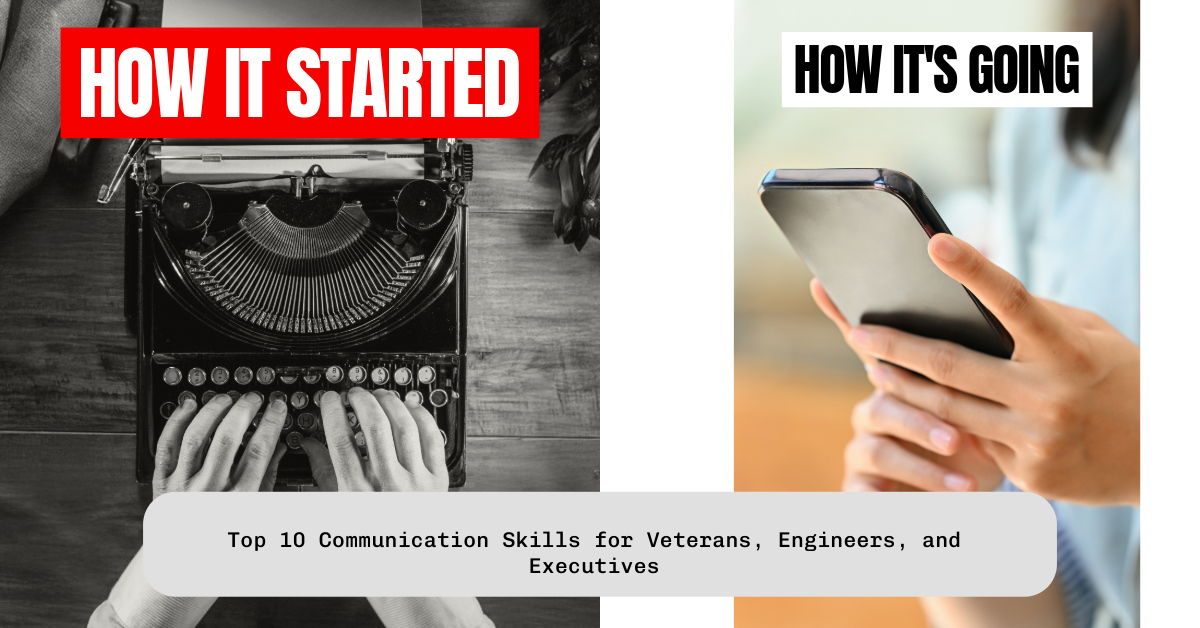In the professional world, the ability to deliver feedback effectively is a vital skill that can drive personal and organizational growth. For veterans transitioning into engineering roles and engineers aspiring to leadership positions, mastering feedback delivery is essential for fostering improvement, building strong relationships, and leading effectively. This article explores the importance of feedback delivery, its benefits, and practical strategies to develop this skill, with a focus on coaching veterans and engineers.
Understanding Feedback Delivery
Feedback delivery involves providing constructive information to individuals about their performance, behavior, or skills. It requires clarity, empathy, and the ability to communicate in a way that encourages growth and development. For veterans and engineers, who often work in technical and high-pressure environments, feedback delivery can significantly impact team dynamics, project outcomes, and career advancement.
The Importance of Feedback Delivery for Veterans
Veterans bring a wealth of experience and leadership skills to the civilian workforce, but transitioning from a military to a civilian career can present communication challenges. Feedback delivery helps veterans effectively navigate these challenges by fostering understanding and collaboration with colleagues from diverse backgrounds.
Key benefits of feedback delivery for veterans include:
- Fostering Growth: Constructive feedback encourages personal and professional growth, essential for career advancement in civilian roles.
- Building Trust: Delivering feedback with empathy and respect fosters trust and strengthens relationships within teams.
- Facilitating Transition: Feedback delivery aids in adapting to new environments and roles, facilitating a smoother transition from military to civilian careers.
The Role of Feedback Delivery in Engineering
Engineers are often tasked with collaborating on complex projects and leading teams. Feedback delivery is a critical skill that enhances their ability to guide team members, improve performance, and achieve successful outcomes.
Key benefits of feedback delivery for engineers include:
- Improved Performance: Constructive feedback helps team members identify areas for improvement and enhance their skills.
- Effective Leadership: Engineers aspiring to leadership roles can use feedback delivery to inspire and motivate their teams.
- Enhanced Collaboration: Clear and empathetic feedback fosters a collaborative work environment and enhances team dynamics.
Strategies for Developing Feedback Delivery Skills
- Be Specific and Objective: Provide clear and specific feedback based on observable behavior or performance. Focus on facts and avoid making assumptions or judgments.
- Use the “Sandwich” Approach: Start with positive feedback, followed by constructive feedback, and end with positive reinforcement. This approach helps balance the message and encourages openness to improvement.
- Practice Active Listening: Encourage dialogue by listening actively to the recipient’s perspective. Ask open-ended questions and validate their feelings and concerns.
- Be Timely: Deliver feedback promptly, while the information is still relevant and fresh. Timely feedback is more impactful and actionable.
- Focus on Solutions: Offer constructive feedback that includes actionable suggestions for improvement. Collaborate with the recipient to identify solutions and set goals for development.
- Be Empathetic: Deliver feedback with empathy and understanding. Consider the recipient’s feelings and perspective, and communicate with respect and sensitivity.
- Follow Up: Provide ongoing support and follow up on progress. Reinforce positive changes and offer additional guidance as needed.
Coaching Veterans and Engineers in Feedback Delivery
Coaching programs tailored for veterans and engineers can play a pivotal role in developing feedback delivery skills. These programs should focus on:
- Customized Training: Addressing the unique communication challenges faced by veterans and engineers through targeted workshops and exercises.
- Mentorship Opportunities: Pairing participants with experienced mentors who can provide guidance and feedback on feedback delivery practices.
- Real-World Scenarios: Incorporating simulations and role-playing exercises that mimic real-world situations to practice feedback delivery in a safe environment.
- Continuous Feedback: Providing ongoing feedback and support to reinforce learning and encourage skill development.
Conclusion
Feedback delivery is a powerful tool that can transform the way veterans and engineers communicate and lead. By mastering this skill, they can enhance collaboration, improve performance, and drive innovation in their respective fields. As the demand for effective communication continues to grow, investing in feedback delivery skills will undoubtedly yield significant returns for individuals and organizations alike.
For veterans transitioning to engineering roles and engineers aspiring to leadership positions, feedback delivery is not just a skill—it’s a pathway to success. By embracing this practice, they can unlock their full potential and make a lasting impact in their careers and communities.
